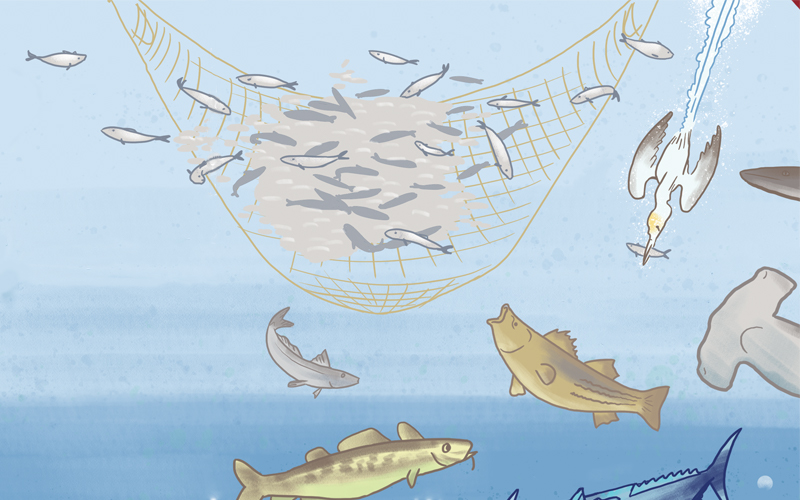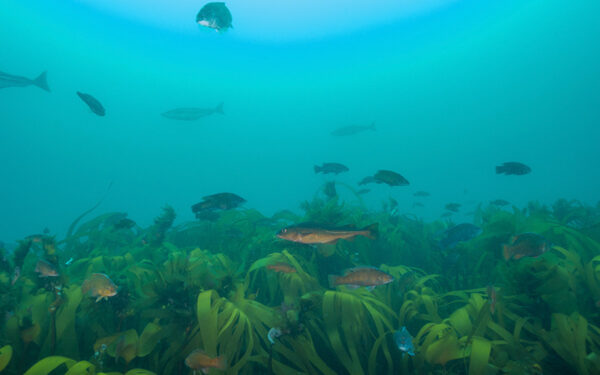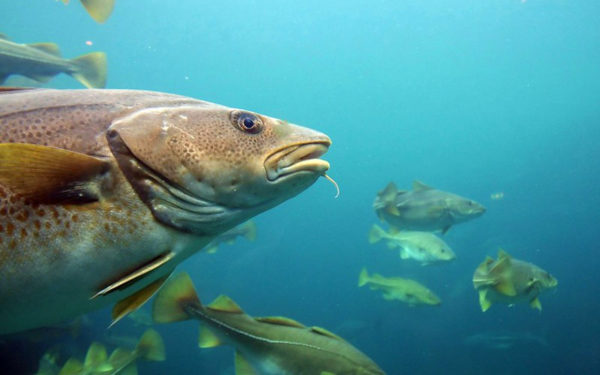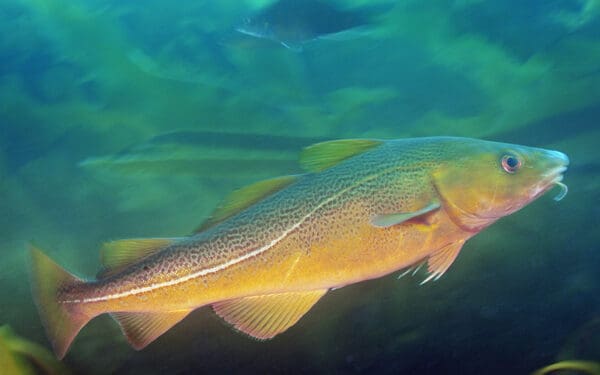
Atlantic herring support the marine ecosystem as food for large fish, whales, seabirds, and more. Current catch limits for herring don't take its crucial role in the ecosystem into account. Illustration: Josh Kramer
UPDATE: Our federal fishery managers at NOAA Fisheries approved Amendment 8. This important management update is a win for Atlantic herring and ocean health. It will create better management for herring by setting catch limits that account for herring’s role in the ecosystem and creating a buffer zone that prevents large boats from fishing close to shore.
Atlantic herring is one of the most important fish in the Northwest Atlantic Ocean. It’s a major source of food for larger fish such as Atlantic cod, bluefin tuna, and striped bass; several species of whales, including our beloved humpbacks; and seabirds such as puffins and terns. An upcoming decision by the New England Fishery Management Council could recognize herring’s role in maintaining the health of our ocean ecosystem.
Current Management is Harming Herring
Right now, New England fishery managers ignore all of the animals that rely on herring when they set limits on how many commercial fishermen can catch. Making the problem worse are gigantic trawlers, commercial fishing boats more than 150 feet long with nets that could span a football field. They fish close to shore and can wipe out entire schools of herring in one fell swoop.
Because herring is an important food to so many predators, it needs to be managed in a way that recognizes its crucial role in the ecosystem.
But the picture is not rosy. The most recent data on herring showed that the population has collapsed and is now dangerously close to being overfished. To allow further declines will hurt our fishing economy, since many commercially important fish rely on herring as a food source. Our tourism economy could suffer too, as coastal seabirds and all of the many marine mammals that support ecotourism in New England thrive on herring. And it will put a strain on other important forage fish in the region such as river herring, shad, and mackerel, as predators will eat them when they can’t find any herring.
Amendment 8 Could Improve How We Manage Herring
We need to view ocean health through a wider lens. This month, the New England Fishery Management Council will vote to change how herring are managed. Called Amendment 8, this is our chance to improve both how New England managers set herring catch limits and the health of ecosystems close to shore. This amendment could help rebuild Atlantic herring and the species that rely on it for generations to come.
Amendment 8 has two components that incorporate this ecosystem approach:
- A “control rule” that sets catch limits on an annual basis that leave enough herring in the water to support predators and the businesses that depend upon them
- A “buffer zone” that prohibits the largest vessels in the fishery from fishing close to shore
Setting Catch Limits for Atlantic Herring
Fishery managers set catch limits in the Atlantic herring fishery by using control rules. A good control rule creates mechanisms to increase the amount of fish the water, ramp down fishing when the population starts to decline, and temporarily cut off fishing when it goes below a critical threshold. For too many years, we’ve set catch limits based only on how many herring can be caught to achieve maximum profits for the fishery, not how many herring can be caught and still leave enough to support marine species that eat them.
Of the alternatives under consideration in Amendment 8, CLF supports a forage-based control rule that is based on the best available science. It will benefit the fishery, the ecosystem, and the many ocean users that depend on a healthy abundance of Atlantic herring.
A Buffer Zone to Prevent Overfishing
Midwater trawlers, which are some of the largest vessels on the East Coast, can catch millions of herring in a single tow. This intense fishing in a small area can result in “localized depletion,” meaning that segment of the ocean ecosystem has no more herring. This leaves local predators, like tuna, striped bass, whales, and seabirds, without an important food source. The herring caught by these giant ships can’t even be sold as seafood – they get crushed in the nets and end up sold as low-quality bait.
A buffer zone wouldn’t just benefit Atlantic herring. It would also create a better environment for vulnerable marine birds, juvenile cod, and commercial whale-watching.
Conservation is a never-ending process, and change is necessary. If the Council chooses to take these important ecosystem considerations into account when it takes final action on Amendment 8, it will make the whole ocean healthier.



